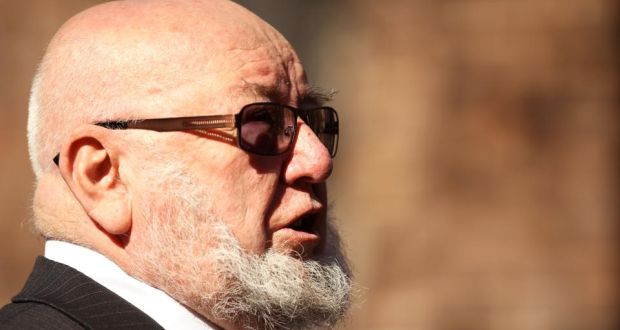A Good Priest, an Abuser and His Victims
By John Boyne
Perhaps the best way for a novelist to portray evil is through detachment, allowing the story and characters to engage the reader at such an elemental level that a deep emotional response is unavoidable. The evil of child abuse within the Catholic Church is, of course, not a phenomenon limited to Ireland. The Oscar-winning film Spotlight depicted atrocities in Boston parishes while Canadian novelist Linden MacIntyre’s The Bishop’s Man took on similar events in Nova Scotia. And now the great Australian writer Thomas Keneally – he of Schindler’s Ark – examines abuse within the Sydney diocese in this compelling novel and inevitably finds the clergy to be more interested in protecting the institution than caring for the child. Keneally makes the decision to set his novel in 1996, before the truth of the scandals was as widely accepted as today. It’s a wise move for it allows us to witness both the scepticism of parishioners and the cynicism of the church as it employed lawyers to discredit victims to minimize both the financial and reputational damage. The novel opens with a middle-aged priest, Fr Frank Docherty, returning to his home city of Sydney from Toronto to deliver a lecture on priestly paedophilia to an audience of his peers. By chance, the taxi driver who brings him to his Order’s house is a victim of childhood abuse and, as she drops him off and sees the “nineteenth century mansion… with the Celtic cross at the apex of the facade” her previously calm demeanour vanishes and she orders him from her car in a barrage of profanity, but not before he, upset by her distress, leaves his card in the back seat. It makes for a dramatic opening but it’s clear from the start that Docherty is a decent man struggling to come to terms with the allegations that are beginning to seep into the public consciousness, even though he has made them the basis of his doctoral studies in Canada. New Australia As the story opens up, we are introduced to various characters, each of whom will shape his experience of the new Australia. The mother of a drug addict who died by suicide, leaving a note condemning a prominent monsignor for abusing him as a boy. That same monsignor, who is chairing a panel called In Compassion’s Name, dedicated to reconciling with victims of abuse by paying them off while forcing them to sign confidentiality agreements. The monsignor’s sister, who Docherty once loved. The cardinal torn between his responsibilities to the church and a deep down – quite far deep down, it must be said – sense of honour. And, most movingly, a doctor who is taking the church to court seeking compensation for the damage his own childhood abuse inflicted on his later career and marriage. One of the strengths of the novel is in Keneally’s depiction of the abuser. A chilling portrait is drawn of a man who despises himself for his actions – breaking down in tears afterwards, admitting his crimes in the privacy of the confessional – but who nevertheless seems incapable of stopping. The scenes between him and Docherty, who has uncovered the truth, are compulsive as the priest finds himself an unwilling denouncer of a church he loves, actions that threaten his ambition to return to Sydney to see out his days in his home city. Catholic hierarchy Keneally is one of the great chroniclers of his country’s history – anyone with an interest in that continent should read his brilliant three-volume Australians – and here he recognises the injustices done to his fellow countrymen and women by an uncaring establishment, just as he has previously taken on the crimes committed against the indigenous people and the Stolen Generation. He does so here in a considered fashion – indeed, when he suggests that Christ is “also a sort of victim of the church” it’s impossible to disagree. There will be those who feel that there is too little anger in the novel, that the victims-by-association, and by that I mean those who have discovered what their loved ones went through and been deeply affected by it, maintain too much loyalty to the institution in which they have been reared, and such criticisms may well be valid. But perhaps that is because people in the mid-1990s were not quite ready to take a stand against the Catholic hierarchy in the way that they would come to do in later years.Had the novel been set in 2017, I suspect the focus would by necessity switch from the disenchantment of Fr Docherty to the extraordinary rage of his taxi driver, Sarah Fagan. But to the growing body of work devoted to this most dispiriting of subjects, Crimes of the Father is a welcome addition, not least for the dignity that Keneally lends to the good priest’s voice as well as to those of the victims of abuse.
|
.
Any original material on these pages is copyright © BishopAccountability.org 2004. Reproduce freely with attribution.
